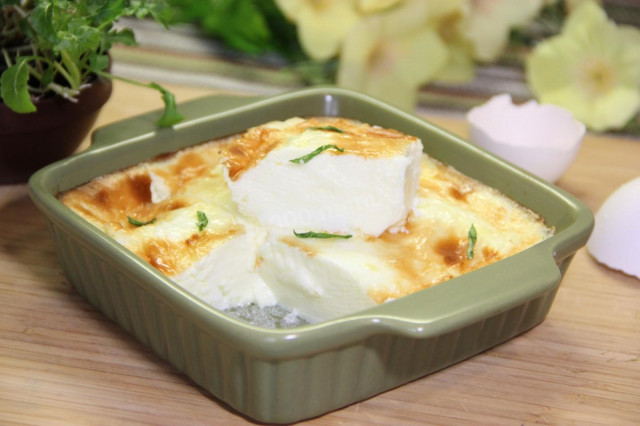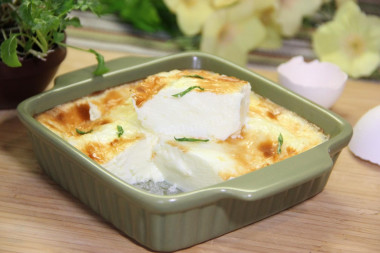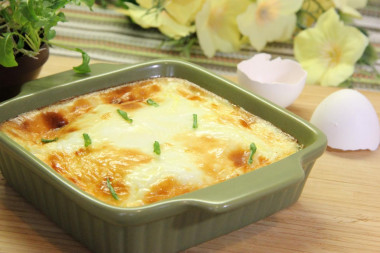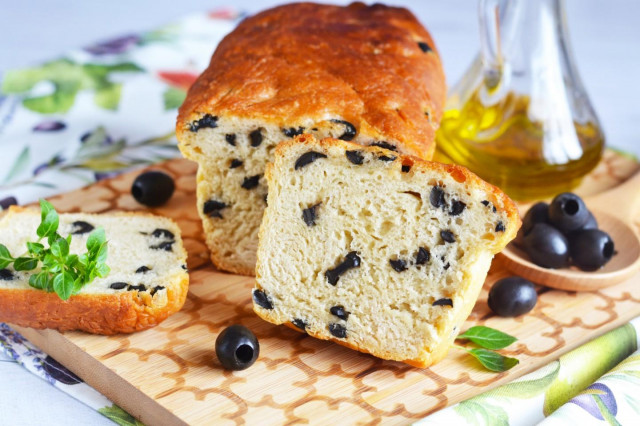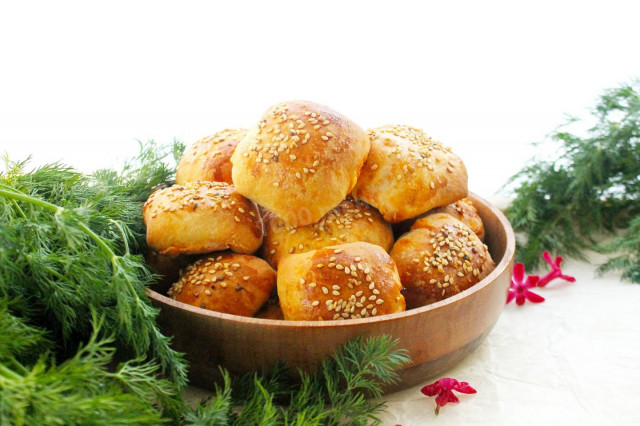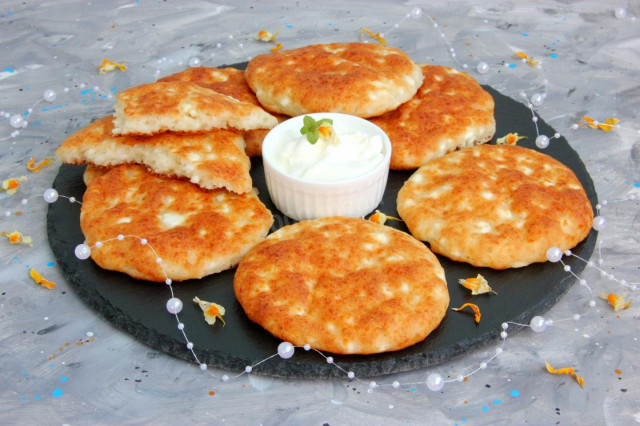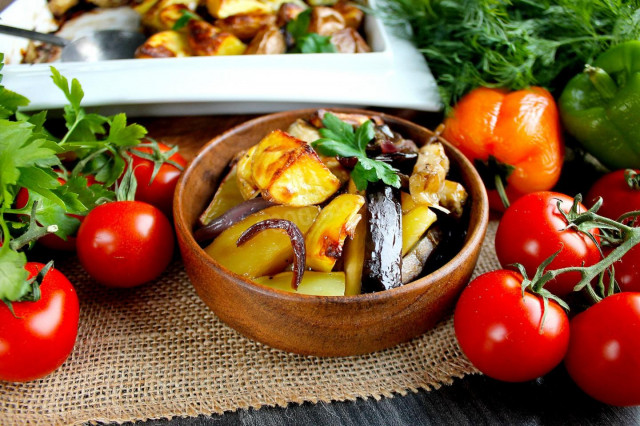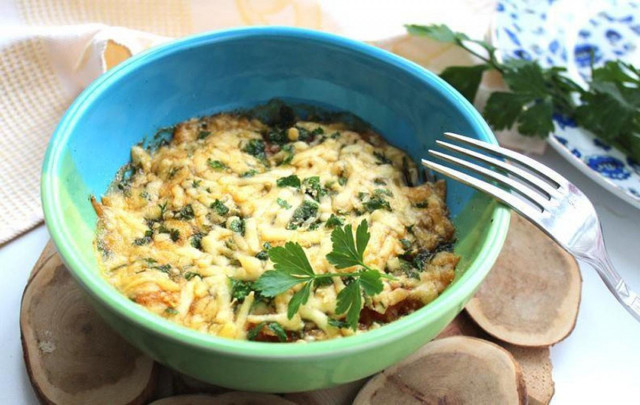Composition / ingredients
Step-by-step cooking
Step 1:
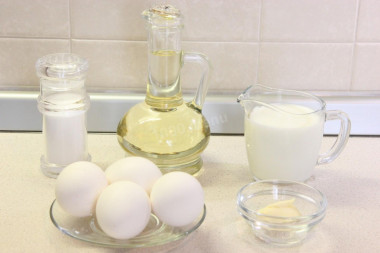
Prepare the necessary products. Be sure to wash the eggs, because even on the seemingly clean shell there are harmful bacteria. How do I know if an egg is fresh? Break it into a container. First of all, there should be no unpleasant smell. The protein of fresh eggs will be transparent and clean. The yolk should not spread and will be shiny, convex, homogeneous.
Step 2:
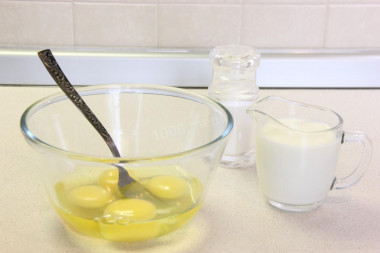
Combine eggs and salt in a container. The temperature of the eggs, in this case, does not play a special role. They can be chilled or at room temperature. Pour in warm or cold milk. It is important that it is not hot, otherwise the egg mixture will curdle. Lightly stir everything with a whisk until smooth. Do not take aluminum dishes for whipping. The protein in it will darken, and the yolk will turn greenish. Also, do not beat with a mixer, otherwise the omelet will not turn out so lush.
Step 3:
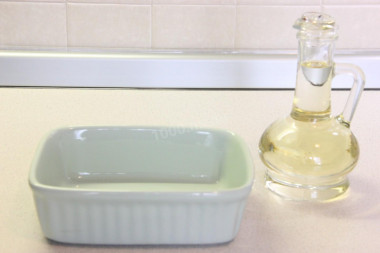
Lightly lubricate the baking dish with refined vegetable or butter so that the omelet does not burn and easily separates from the walls of the dishes when removed. Which form is best to use? I took a ceramic rectangular container, but you can take heat-resistant glass or cast-iron dishes. Molds made of these materials heat up slowly, because the dish is baked evenly and does not burn.
Step 4:
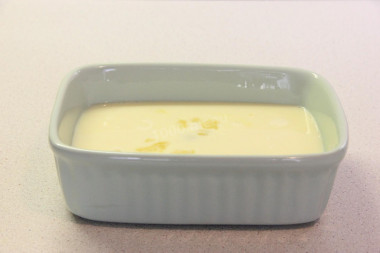
Note that during the baking process, the omelet will grow by about 1/3 part. Therefore, the baking dish should be with high sides and a small diameter. Pour the egg mixture into it.
Step 5:
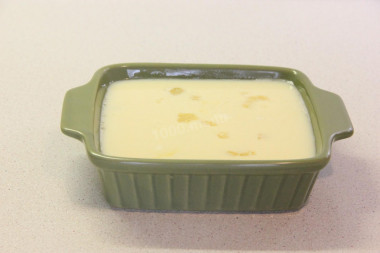
The smaller the size of the dishes you use, the higher and more magnificent the omelet will be. Turn on the oven in advance (10-15 minutes before cooking).
Step 6:
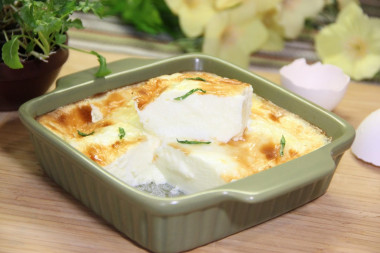
I cook an omelet at 250 ° C for 15-20 minutes, but if you have doubts, you can preheat the oven to 160-180 ° C and cook for about 30-40 minutes. Do not open the oven while baking, otherwise the omelet will fall off. How to check its readiness? A golden crust should form on the surface. Pierce the omelet with a toothpick, it should not be liquid inside. Remove from the oven. Brush it with butter on top. The finished omelet will fall off a little, as it should be.
The omelet turned out perfectly! So tender, porous, lush and delicious! The recipe is basic and it can be varied. For example, by adding seasonings to the omelet to taste, grated hard cheese, chopped bell pepper, sausages. The dish is served hot. As an accompaniment, fresh vegetables, herbs, slices of ham, pork, smoked sausages are suitable. Bon appetit!
Keep in mind that everyone's ovens are different. The temperature and cooking time may differ from those specified in the recipe. To make any baked dish successful, use useful information in the article about ovens here
Caloric content of the products possible in the composition of the dish
- Whole cow's milk - 68 kcal/100g
- Milk 3.5% fat content - 64 kcal/100g
- Milk 3.2% fat content - 60 kcal/100g
- Milk 1.5% fat content - 47 kcal/100g
- Concentrated milk 7.5% fat content - 140 kcal/100g
- Milk 2.5% fat content - 54 kcal/100g
- Chicken egg - 157 kcal/100g
- Egg white - 45 kcal/100g
- Egg powder - 542 kcal/100g
- Egg yolk - 352 kcal/100g
- Ostrich egg - 118 kcal/100g
- Butter 82% - 734 kcal/100g
- Amateur unsalted butter - 709 kcal/100g
- Unsalted peasant butter - 661 kcal/100g
- Peasant salted butter - 652 kcal/100g
- Melted butter - 869 kcal/100g
- Vegetable oil - 873 kcal/100g
- Salt - 0 kcal/100g

